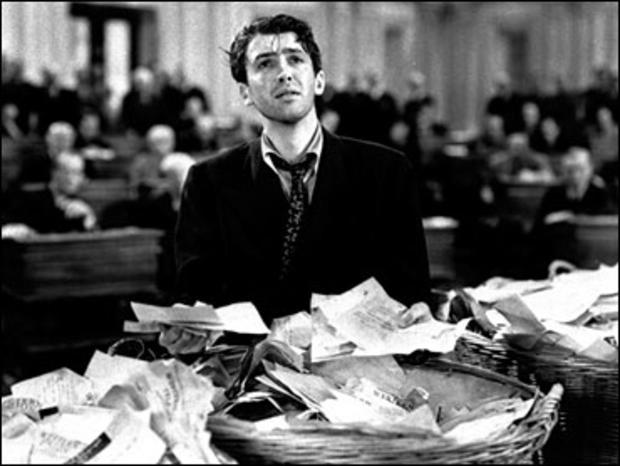Does Filibuster Reform Have a Chance?
Updated at 2:30 p.m. ET
A letter has been signed by every returning Democratic senator urging Majority Leader Harry Reid to push for filibuster reform in the New Congress, National Journal reports.
The letter, which was circulated by senators Carl Levin of Michigan and Mark Warner of Virginia, "expresses general frustration with what Democrats consider unprecedented obstruction [on the part of Republicans] and asks Reid to take steps to end those abuses," according to National Journal.
The letter does not outline a specific change to current filibuster rule, which allows Republicans to block legislation (1) by requiring 60 votes for passage, not a simple majority, and (2) slow down debate on even largely non-controversial issues, essentially killing them since the Senate often does not have time to spend to get to a vote.
Though filibuster reform remains a long shot, the Democratic senators hope the letter bolsters its chances for gaining steam in the next Congressional session.
"Hopefully that gives [Reid] the juice he needs to negotiate reasonable changes so we can stop the abuses next year," said Missouri Democrat Claire McCaskill.
Calls for change come on the tail of a two-year period of unprecedented filibustering and filibuster threats by Republican senators, who have employed the tactic repeatedly not just to block controversial legislation, but also to generally run out the clock on Senate productivity. (In late November, for example, Senate Minority Leader Mitch McConnell threatened a blanket filibuster of all legislation, period, until Congress had passed a tax compromise deal.)
As the Washington Post's Ezra Klein points out, filibusters are among Congress's most effective stalling devices: "While many Americans understand that you need 60 votes to break a filibuster, relatively few realize that you need about a week of floor time on the Senate to even take those votes," Klein writes.
Based on recent proposals by Democrats Jeff Merkley and Tom Udall, it's likely that any Democratic proposals for reform would largely focus on speeding up the filibuster process - not eliminating it. The process of filibustering a bill would, theoretically, become more difficult to start and would require senators to stick around on the floor to sustain it.
"There need to be changes to the rules to allow filibusters to be conducted by people who actually want to block legislation instead of people being able to quietly say 'I object' and go home," McCaskill told National Journal.
Senate Democrats have also called for the end of a rule that mandates a 30-hour waiting period between a vote to break the filibuster and a vote for the actual bill.
Merkeley, a first-term Democrat from Oregon, released a memo last month proposing that the rules be reformed. Part of his proposal would mandate that five filibustering senators be present on the floor for the first 24 hours of a filibuster, and that 10 be on the floor for the following 24 hours. After that, 20 members would need to stay on the floor to filibuster a bill going forward. And through all of this, debate would have to continue or the filibuster would end. Currently, senators who filibuster or threaten filibuster generally do not have to have a physical presence on the floor.
A spokesman for McConnell told National Journal that Democrats would regret the adoption of a filibuster reform were they to return to the minority. Outgoing Connecticut Democratic Senator Chris Dodd, the only current Senate Democrat not to sign the letter, has argued against the move as well.
Merkley told National Journal that it was too early to guess the fate of a possible reform in the 2011 Congress.
"The next step is that when we come back in January, to actually be able to hold that type of conversation on the floor of the Senate," he said.
Update: Reid is already devising a plan with his caucus to take specific steps for filibuster reform, the Washington Post's Greg Sargent reports. The Senate leader reportedly devoted a significant portion of time to the subject at a Democratic caucus meeting this week.

